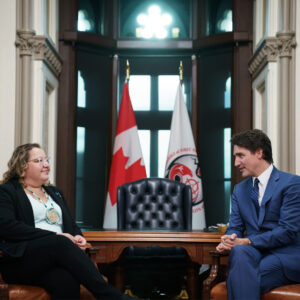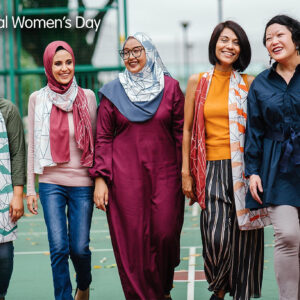
OTTAWA – A high-level and closed door Gathering on Missing and Murdered Indigenous Women and Girls was held in Ottawa on February 27th.
The gathering, organized by the Assembly of First Nations, was the hopeful first step toward creating a national response to resolving the epidemic level of missing and murdered indigenous women and girls throughout Canada.
However the meetings were not as successful as many hoped. An outcry erupted over social media because only four of the nearly 2000 MMIW families were invited to share their stories as an official part of the roundtable gathering. Those four families were each given just four minutes to speak to the collective.
Simultaneously at Carleton University, a People’s Forum was being held and broadcast live online to gather input and recommendations for action to prevent and end violence against indigenous women and girls.
Many used the opportunity to voice their frustrations that the federal government has not and likely will not prioritize financing an indigenous-led national inquiry as to why indigenous women are five times more likely to be murdered or go missing than any other group of women in Canada.
Kahnesatake Mohawk Ellen Gabriel spoke at the People’s Forum saying that the problem will not be resolved as long as a conservative Prime Minister sits in Ottawa. She urged the Canadian public, “In the next election, vote for anybody but Stephen Harper!”
Gabriel also said that media and conservatives are consistently passing the buck of MMIW off to be an indigenous issue and the fault of domestic violence from the hands of indigenous men. Gabriel spoke passionately to the gathering, “Women are the backbone of our nations and it’s the women who are continually attacked by colonial policies,” she said. “Violence against indigenous women is a human rights issue. It is not just a criminal issue.”
Throughout the day frustrations at the people’s gathering and across social media led to a collective of representatives from the grieved families of the MMIW travelling to the hotel where the official roundtable discussions were being held.
The people arrived, peacefully but loudly protesting the roundtable meeting and demanding their stories be included in the conversation. Drummers were present to play honour songs for the families.
To add further insult to injury, the RCMP were called in to deal with the grieved families who were demanding that indigenous officials leave the round table discussions in protest that all grieved families were not given an opportunity to voice their stories.
The conclusion of the meetings resulted in mixed emotions for all parties represented – all frustrated that the federal government refuses to participate in action based change to resolve the issue of MMIW or answer the call for a national inquiry.
Chiefs of Ontario Regional Chief Stan Beardy expressed his frustrations. “We support a national Inquiry because we believe this process will assist the families in their healing process and provide them a sense of justice.”
The Association of Iroquois and Allied Indians Deputy Grand Chief Denise Stonefish also shared her thoughts. Stonefish said, “The loss of 1,200 women needs a more substantial response than dialogue. We need solutions and we need a commitment to take action from the federal government. And while we fully support the solutions that were put forth today and are generally supportive of the Roundtable process, our people continue to ask Canada: ‘How many more Indigenous women and girls will be lost before Canada takes this issue seriously?”







